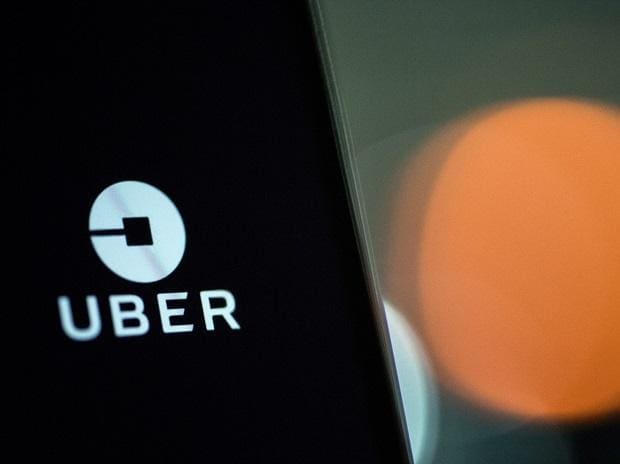Uber bookings beat on robust demand for rides, delivery during holidays
Uber Technologies Inc. reported gross bookings that beat analyst estimates, showing strong global demand for rides and food delivery during the holiday period.
Gross bookings, which include delivery orders, ride hails and driver and merchant earnings but not tips, were $37.6 billion in the three months ended Dec. 31, Uber said in a statement Wednesday. Analysts expected $37.1 billion on average. For the current period, Uber forecast bookings of $37 billion to $38.5 billion, implying that the mid-point is slightly above Wall Street’s average estimate of $37.3 billion.
The fourth quarter “was a standout quarter to cap off a standout year,” Chief Executive Officer Dara Khosrowshahi said in prepared remarks to shareholders. “Consumer activity remained healthy across the world, supported by the continued shift of spending from retail to services.”
The shares were up 1.6% at midday in New York, reversing earlier losses. They have more than doubled over the past year and are trading at a record high. The stock has outperformed the S&P 500 Index, of which it became a member in December, and smaller rival Lyft Inc., which is down about 30% over that time.
Investor expectations were high before the report was released, and the results “continue to highlight Uber’s ability to drive profitable growth at scale,” analysts at Needham wrote in a note.
After a tumultuous period during the pandemic and years of freewheeling spending to gain market share, Uber is showing signs of stabilizing and becoming a financially mature company. The December quarter marked the third consecutive period of operating profit as Khosrowshahi has been disciplined with costs. The San Francisco-based firm has kept its headcount mostly flat, apart from downsizing its recruitment team and some acquisition-related role eliminations in 2023, avoiding some of the painful mass layoffs afflicting many tech companies that over-hired during the pandemic boom.
Uber’s improved profitability and increased cash flow has allowed it to proceed with an earlier pledge to return capital to shareholders. The company will provide more detail on those plans at an investor event next week, it said.
Uber’s results were driven by higher trip volumes in its ride-hailing business. Gross bookings in mobility increased 29% in the fourth quarter, as the company cited “outsized trip growth” in Latin America and the Asia-Pacific region, with Uber attracting more users to the platform and those users taking more trips.
After struggling with a driver shortage during the pandemic that caused fares and wait times to increase, Uber said the number of active drivers were up 30% in the fourth quarter compared with a year earlier. The number of trips taken increased 24%.
When the pandemic crushed demand for rides, Uber’s move to focus on Uber Eats helped it gain a foothold in the meal delivery sector which has continued to grow. Delivery bookings increased 19%, the most in two years, in the fourth quarter. Uber said that growth is coming from attracting more people who are using the service more often, rather than higher pricing.
Membership for its loyalty program, Uber One, which costs $9.99 a month and offers perks such as waiving a delivery fee, drove 45% of delivery gross bookings, Khosrowshahi said on the call. The program had 19 million members in 25 countries at the end of the last year and is expected to continue to contribute to increased order frequency and order size as it becomes a bigger portion of the business, he said.
Uber Eats also broadened its competitive position across major international delivery markets, including Australia, France, Mexico and Japan, and the company has added new retail and grocery partners to its platform. Its nascent but growing advertising business has also helped expand margins for the delivery business.
Uber has previously said it’s shutting down Drizly, the alcohol delivery app it bought for $1.1 billion in 2021, allowing it to put more resources toward consolidating its delivery services on Uber Eats. “Should we put the next marketing dollar behind Uber Eats, i.e. a Super Bowl commercial, or should we put that next marketing dollar to introduce the Drizly brand to consumers? It didn’t make sense to keep investing in Drizly,” Khosrowshahi said in an interview with Bloomberg Television.
“We’ve taken what we learned from Drizly, the merchant relationships, and we are building on alcohol within Uber Eats,” he added. “We think that’s the next best investment going forward for us as a company.”
Net income was $1.43 billion, compared with the $351.2 million analysts were expecting, as it includes $1 billion primarily from unrealized gains related to revaluation of the company’s equity investments including Chinese ride-share peer Didi Global Inc. and autonomous trucking company Aurora.
Revenue increased 15% to $9.94 billion, ahead of estimates for $9.78 billion.
Uber’s freight business continued to be a drag on overall results, with gross bookings down 17% in the quarter from a year earlier, though that was an improvement from the decline in the previous period.
First Published: Feb 07 2024 | 11:43 PM IST
